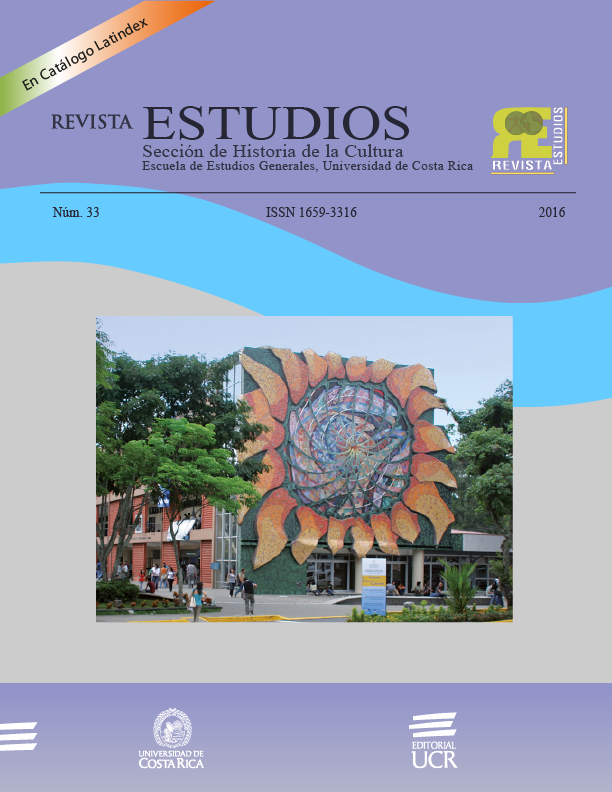Abstract
The article discusses the early poetic creations on the "Story of Li and Yang", the romance between Emperor Xuanzong of the Tang Dynasty and his concubine Yang Guifei. It analyzes the different perspectives on this issue in some works of the three great poets of Tang: Li Bai, Du Fu and Bai Juyi. The transformations of the "Story…" remind the different facets of the "puppet within the system of culture" as the semiotician Yuri Lotman defines the "cultural object". The puppet serves as a toy, a model and finally as a work of art. Bai Juyi’s creation on the "Story ..." is crucial because he takes it up and engages it in a literary game, in order to save it from oblivion and give it a new life. Through numerous poems, he manages to recreate the romance in a multifaceted way and trace a path to immortality for its two protagonists.
References
Bai Juyi. (1988). “Chang hen ge” [Canto del pesar interminable]. En Zhu Jincheng (ed.), Bai Juyi ji jian xiao, er [Bai Juyi. Obra completa y anotada, vol. II]. Shanghai: Shanghai Guji chubanshe, pp. 659-681.
Bai Juyi. (1988). “Hu xuan nü” [La danzante huna]. En Zhu Jincheng (ed.), Bai Juyi ji jian xiao, yi [Bai Juyi. Obra completa y anotada, vol. I]. Shanghai: Shanghai Guji chubanshe, pp. 161-165.
Bai, Juyi. (2001). “Chang hen ge” [Canto del pesar interminable]. En Guan Youqing (ed.), Baihua Tangshi Sanbai shou [Trescientos poemas en chino vernacular]. Changsha: Yuelu Shushe, pp. 107-115.
Bai Juyi. (2005). “Nishang yuyi qu ge” [Canto de la melodía “Prendas arcoíris y emplumadas”]. En Xie Siwei (ed.), Bai Juyi shi xuan [Poemas selectos de Bai Juyi]. Beijing: Zhonghua shuju, pp. 176-180.
Chen, Hong. (1998). “Chang hen zhuan” [Leyenda del Canto del pesar interminable]. En Youhe Zhang (ed.), Tang-Song Chuanqi xuan [Cuentos selectos de las dinastías Tang y Song], pp. 130-144.
Feifel, Eugène. (1961). Po Chü-yi as a Censor. The Hague: Mouton & Co.
Gernet, Jacques. (2004). Kitaiskata civilizacia [The Chinese Civilization]. Konstanza Cananou and Ivan Batalov (trad). Sofía: Kama.
Konrad, Nikolai. (1979). Oeste y Este, Marta Vladova (trad.). Sofía: Nauka i izkustvo.
Li, Bai. (1956). “Tianjin sanyue shi” [“En marzo, por el puente Tianjin”]. En Li Taibai quanji ·Di er juan·Gufeng wushijiu shou [Obra completa de Li Taibai, rollo II, 59 odas al estilo antiguo. Taipéi: Dongfang shudian, pp. 2-3.
Li, Bai. (1956). “Wu xi qu” [“Canto de los cuervos adormecidos”]. En Li Taibai quanji ·Di san juan [Obra completa de Li Taibai, vol. III]. Taipéi: Dongfang shudian, p. 2.
Li, Bai. (1956). “Zhan cheng nan” [“Batalla al sur de los muros”]. En Li Taibai quanji ·Di san juan [Obra completa de Li Taibai, rollo III]. Taipéi: Dongfang shudian, p. 3-4.
Lotman, Yuri. (2000). “Los muñecos en el sistema de la cultura”. En La Semiosfera III. Semiótica de las artes y de la cultura. Valencia: Ediciones Cátedra (Grupo Anaya S. A.).
Po, Chü-yi. (2000). “The Song of Lasting Regret” and “Iranian Whirling Girls”. En Victor H. Mair (ed.), The Shorter Columbia Anthology of Traditional Chinese Literature. New York: Columbia University Press, pp. 270-279.
Waley, Arthur. (1949). The Life and Times of Po Ch-i (772-846 A.D.). London: George Allen & Unwin.
Waley, Arthur. (1958). The Poetry and Career of Li Bo (701-762 A.D.) (2nd ed.). London: George Allen & Unwin.
Wang, Xinxia. (1990). “Tangshi zhong Li-Yang ticai de yanbian yu Buluo de julishuo” [“El desarrollo del tema ‘Li – Yang’ en la poesía de la dinastía Tang y el concepto de distancia de Bullough”]. Beijing Shifan Xueyuan Xuebao (Shehui Kexue Ban), (3): pp. 71-77.
Wei, Deliang, Shoukang Jiang. (1984). Zhongguo gudai mingren xiaozhuan” [Biografías de famosos personajes históricos de China antigua]. Hangzhou: Zhejiang renmin chubanshe.
Watson, Burton. (2000). Po Chü-yi. Selected Poems. New York: Columbia University Press.
Yuan, Shiyan. (2002). Zhongguo gudai wenxue zuopin xuan [Obras selectas de la literatura china antigua]. Beijing: Renmin wenxue chubanshe.
Yüan, Chen. (2000). “Iranian Whirling Girls”. En Victor H. Mair (ed.), The Shorter Columbia Anthology of Traditional Chinese Literature. New York: Columbia University Press, pp. 280-281.
Yuan, Zhen. (2001). “Xinggong” [“El palacio temporal”]. En Guan Youqing (ed.), Baihua Tangshi Sanbai shou [Trescientos poemas en chino vernacular]. Changsha: Yuelu Shushe, p. 359.
Zhang, Junfeng. (1995). “Pingyi Tang Xuanzong yu Yang Guifei aiqing de shiwen sheling” [“Discusión sobre ciertos detalles literarios del amor de Tang Xuanzong y Yang Guifei”]. Renwen Zazhi, (1): p. 127.
